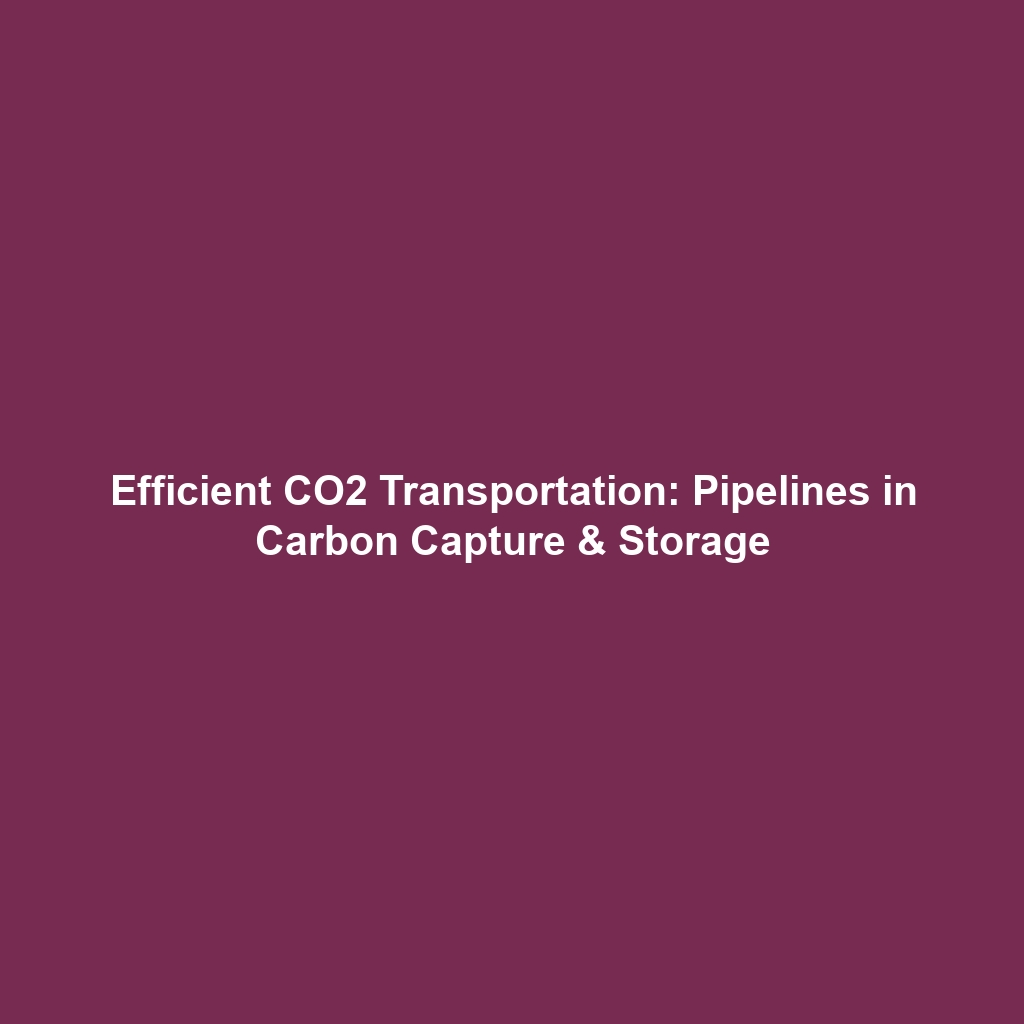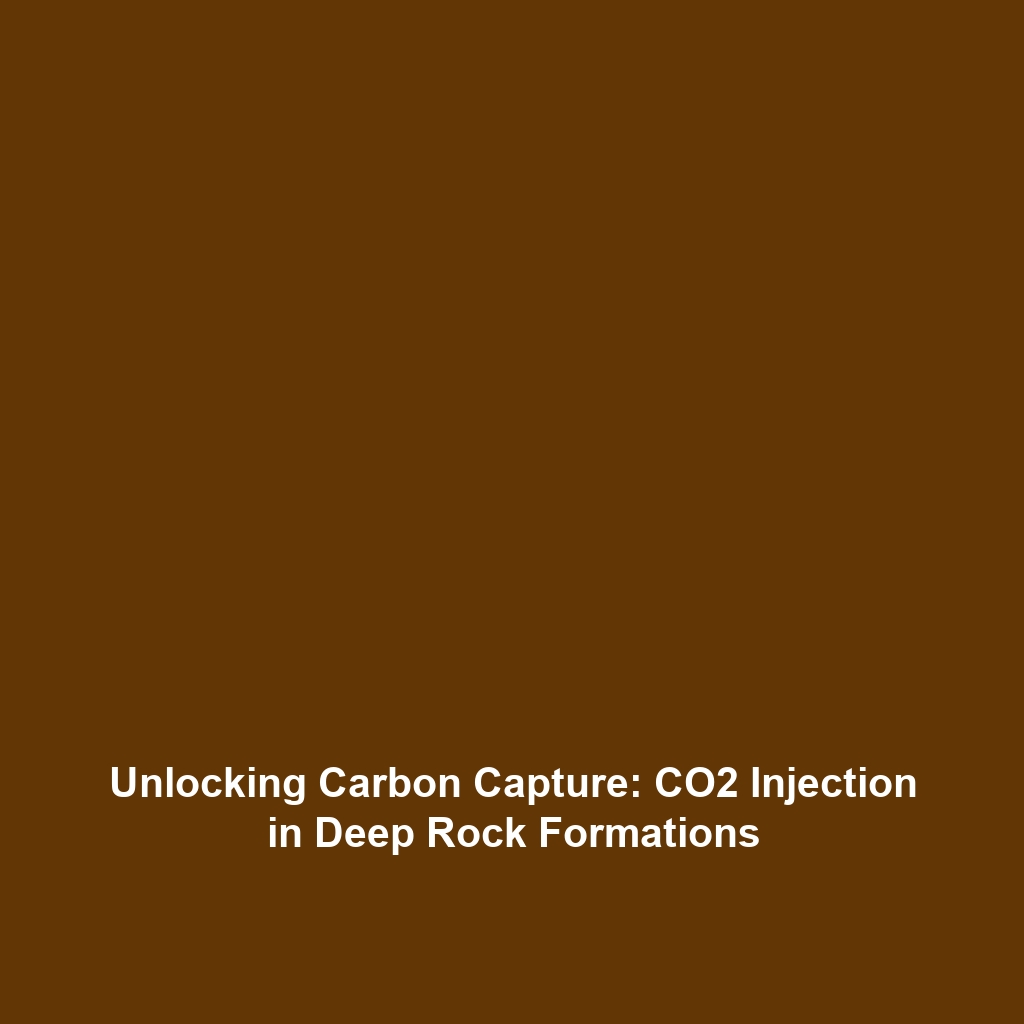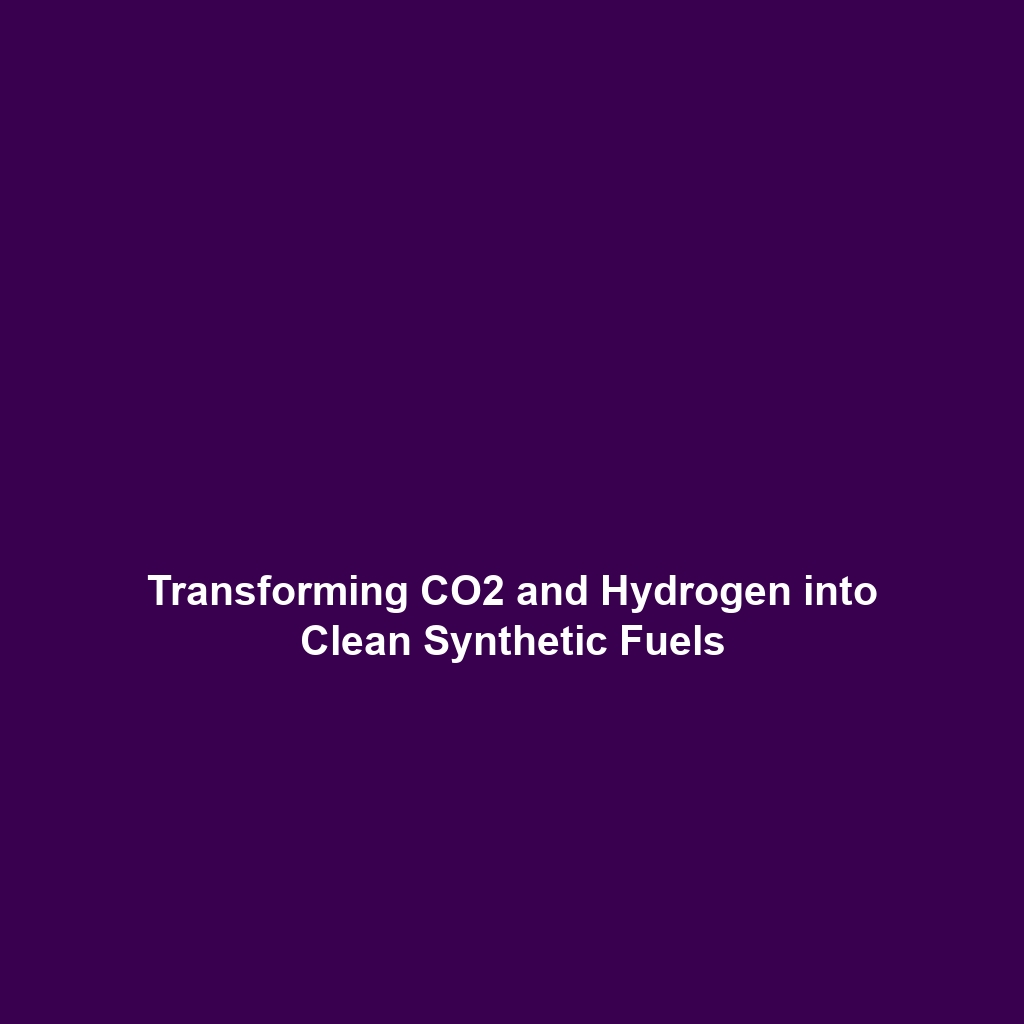CO2 Reacts with Minerals to Form Solid Carbonates: A Path to Permanent Storage
Introduction
The reaction of carbon dioxide (CO2) with specific minerals to form solid carbonates is a critical component of Carbon Capture & Storage (CCS). This process not only provides a viable solution to mitigating greenhouse gas emissions but also ensures the permanent storage of carbon in a solid state. Understanding how CO2 integrates with minerals to create stable compounds is essential for developing effective CCS technologies aimed at combating climate change and achieving carbon neutrality.
Key Concepts
Understanding CO2 Mineralization
CO2 mineralization is the chemical process wherein carbon dioxide reacts with naturally occurring minerals to produce solid carbonates. This method of carbon capture not only sequesters CO2 but also turns it into non-toxic, solid materials that can be safely stored or utilized. The key minerals involved include:
- Olivine: A magnesium iron silicate that reacts readily with CO2.
- Serpentine: A group of minerals rich in magnesium, known for their ability to capture CO2.
- Basalt: Volcanic rock that has shown promising results in CO2 mineralization.
The Role in Carbon Capture & Storage (CCS)
This mineralization process is integral to Carbon Capture & Storage (CCS) as it not only provides a means to capture CO2 emissions from industrial sources but also immobilizes carbon in a stable form. As climate change intensifies, the significance of reliably locking away carbon becomes crucial for future environmental sustainability.
Applications and Real-World Uses
The applications of CO2 reacting with minerals for the creation of solid carbonates are diverse and significant within the Carbon Capture & Storage (CCS) landscape:
- Construction materials: Carbonates created can enhance building materials, making them more sustainable.
- Aggregate production: Using carbonated minerals as construction aggregate reduces the carbon footprint of building projects.
- Soil enhancement: Solid carbonates can improve the chemical properties of soil, contributing to agricultural sustainability.
Current Challenges
However, there are several challenges associated with the process of CO2 mineralization:
- Reaction kinetics: The rate at which CO2 reacts with minerals can be slow, limiting its scalability.
- Economic viability: The cost of mining, processing, and transporting minerals may pose financial hurdles.
- Geological considerations: Not all regions possess the necessary mineral resources for effective CO2 mineralization.
Future Research and Innovations
Innovations in the field are promising, with ongoing research focused on enhancing the efficiency and effectiveness of CO2 mineralization. Future breakthroughs may include:
- Bioengineering: Utilizing microorganisms to speed up the mineralization process.
- New catalytic processes: Developing catalysts that can optimize CO2 reactivity with minerals.
- Novel composite materials: Creating advanced composite materials to facilitate the storage of CO2 in solid forms.
Conclusion
The reaction of CO2 with certain minerals to form solid carbonates represents a promising approach to permanent carbon storage within the broader framework of Carbon Capture & Storage (CCS). As our understanding and technology evolve, this method could play a vital role in addressing climate change challenges. For more information on sustainable practices and innovations in CCS, explore our additional resources on carbon capture technologies and environmental sustainability.






